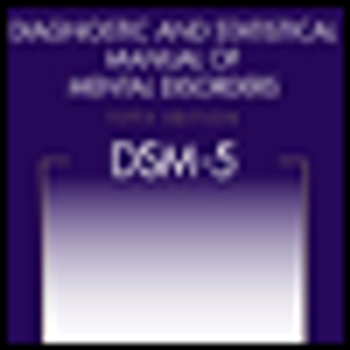
The next I heard of the Prince, my hopes that he had reshaped his consciousness in a more healthy direction were dashed. The Prince was in solitary confinement as punishment for another attempt to establish his empire.

The next I heard of the Prince, my hopes that he had reshaped his consciousness in a more healthy direction were dashed. The Prince was in solitary confinement as punishment for another attempt to establish his empire.

The project culminating in the 2 issues of the Bulletin of the Association for the Advancement of Philosophy and Psychiatry (the Bulletin) included in PDF format with this introduction has its own history.


A reader asks an expert about differential features distinguishing between early stages of tardive dyskinesia and motor tics.

Which scales can help diagnose ADHD in adults? Are CT, PET, EEG, and MRI reliable diagnostic tools for ADHD? These questions and more in this week's quiz.

There is evidence that the combination of medication and psychotherapy improves outcomes for many psychiatric illnesses. Among the several forms of psychotherapy that might be considered, cognitive-behavioral therapy (CBT) is the most extensively studied.

Our study suggests that most delusional patients, even those with high positive symptom scores, may have at least 1 RFD that precedes a clinical intervention specifically directed toward encouraging doubt. These preexisting “islands of doubt” may offer a useful foothold to begin the CBT process.

Similar to some forms of PTSD, this disorder is prone to be severe because the stressor is of human/corporate design. Note: this diagnosis is not currently reimbursed by health insurance carriers.

Morally motivated decision making has been increasingly studied by the social sciences, and distinctive patterns are emerging. Most subjects begin to have serious moral reservations as their decisions come closer to directly affecting a human life.


The preface explains why Prime Time is so needed. It provides a refreshing, nonjudgmental summary of how and why we’ve arrived at the 20-minute hour. This is important for disgruntled clinicians from the “good old days” as well as for early-career clinicians who have not learned anything better.

He had returned to a familiar place, and his peers welcomed him back. The word "recidivist" comes from the French word "recidiver," meaning to "fall back." This was not the first time he had fallen back. He would surely tell you that his return was not by choice, but sometimes such things are hard to determine.

A recent study reports that patients have a greater chance of survival when given opiate substitution treatment (OST) for over 12 months. Although there has been a 2-fold increase in opiate prescriptions in the past 10 years, the mortality rate from OST has fallen, making it a viable treatment for opiate abusers.


This essay does not proffer a change in the classification of specific conditions but will sketch a new meta-concept of evaluative disorders that encompasses a number of prevalent and serious psychiatric diagnoses.

AUDIO A good apple pie fixes every pain. Your grandmother baked them to be sure you’d know- Cinnamon for heartbreak, cloves for shame . . .

Harvard professor, Marc Hauser, PhD-whose views on the evolution of morality have been widely accepted by many psychiatrists and others-was recently found by a university investigating committee to be “solely responsible for 8 instances of scientific misconduct.”

As I came closer, I could see Mr P more clearly. He was in his own world, wearing a Walkman with earphones on. I puzzled for a brief moment over this-was this to shut out attempts to talk him down? I could also see more clearly the rivulets of blood dripping from the incisions on his wrists to the concrete ground below.



SPECIAL REPORT: CHILD AND ADOLESCENT PYCHIATRY Keys to Success in ADHD Treatment Clinicians who treat children with ADHD face a challenging conundrum. Although our understanding of ADHD and its evidence-based treatments has increased significantly in recent years, the number of successful treatment outcomes has not.



It is well known that black people, compared to white people, are much more likely to be diagnosed as suffering from ‘schizophrenia’ if they are seen at psychiatric units in the UK or USA. .


Which medications have typically been used as first-line treatment for acute mania? Is comorbidity the rule or the exception in patients with bipolar disorder? These questions and more in this week's quiz.


I am a Registered Nurse of 37 years who has worked in hospice care and psychiatric emergency; I’ve worked as a med/surgical manager and (now) as an inpatient psychiatric nurse. Throughout it all, I most enjoy seeing a patient realize he/she is getting well; I also enjoy conducting small teaching groups to help the patient know how to stay well.

In a recent issue of Psychiatric News, members of the DSM-5 Task Force reported on the dimensional measures being considered for DSM-5. These take 2 forms: severity scales for individual disorders, and “cross-cutting” measures that cut across disorders. For this brief piece, I will focus on the latter, the more interesting and controversial of the proposed dimensions.

This table provides links to many valuable resources for child and adolescent psychiatry. A list of Web sites, books, organizations, and pivotal articles on ADHD and other topics.